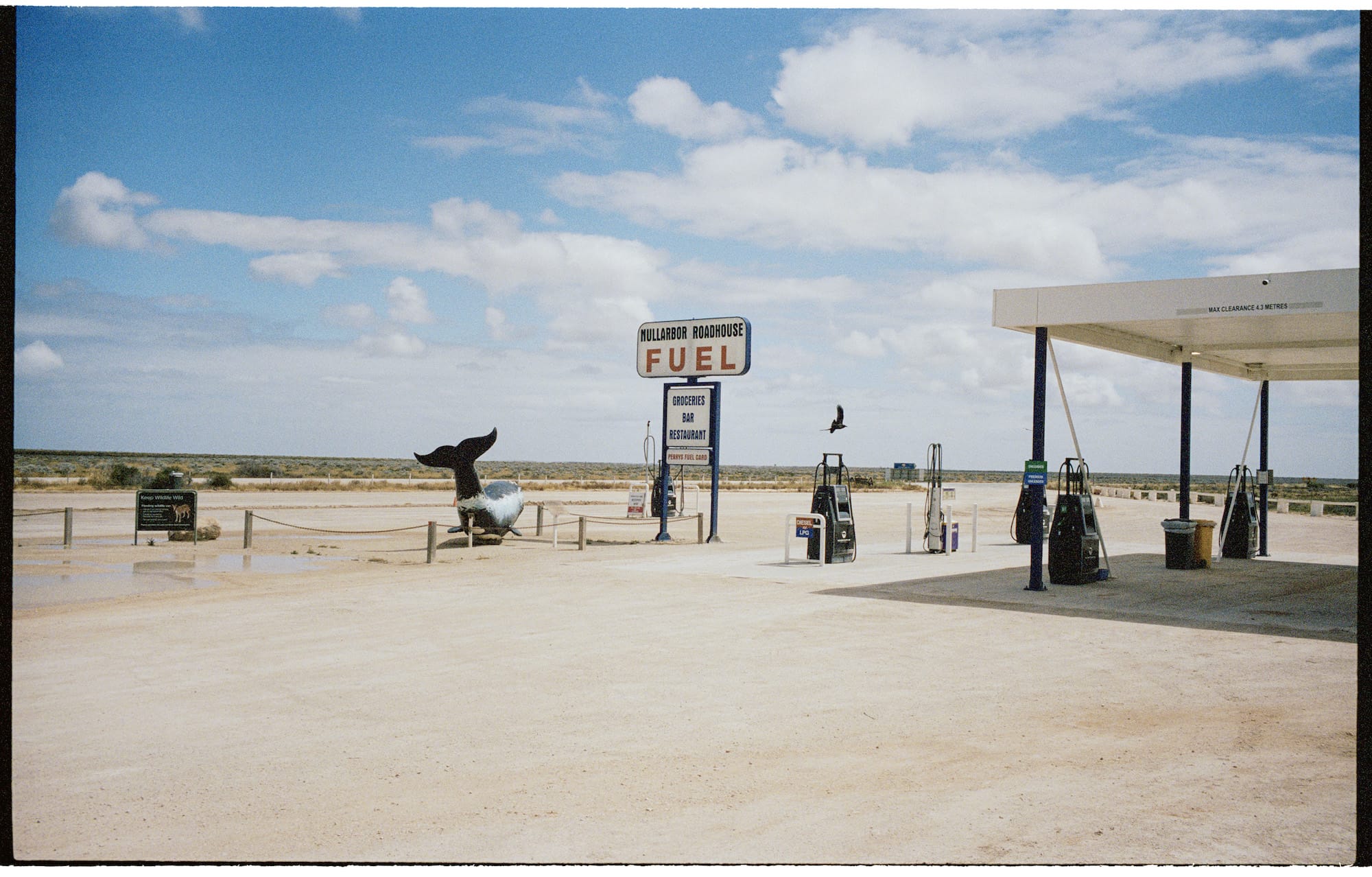
A 15-year journey takes Trent Mitchell through caravan parks, roadside kitsch and childhood memories.
Photography and words Trent Mitchell
DURING the ’80s, I spent every school holiday at a caravan park with my family. We’d drive north from our home in Sydney’s Northern Beaches and relocate for weeks at a time to Budgewoi, a quiet town on the Central Coast.
Every time we went, things would feel different and a little funny at first. At home, the city was loud, busy and competitive. Up there, our little town seemed to move at the perfect speed every day, and over the years it kept itself stuck in time.
The caravan park was wedged between an enormous, open, sharky beach and a smelly stagnant lake that gave you pelican itch. Across the water, a power station loomed as the centrepiece to our sunset view.
The air was thick with salt, glazing everything with a distinct coastal patina. Most things would decay in the elements. Bikes and barbecues tended to go first. The hard sun and open space didn’t help, yet the heat was perfect for ice cream, fish and chips, and bare feet.
Over the years, we grew to love our little slice of regional Australia: the people, the slang, the rituals, the beaches, the colours, the atmosphere. During these seemingly never-ending holidays, our family existed in a quintessentially Australian world, and the experiences were etched deep into the corners of my consciousness, informing the curiosity and passion that I carry with me on the road now.
Today, I find myself pointing a camera towards the past, holding onto those cherished slices of time, hoping to infuse the reflections and feelings into pictures. Sometimes, I retrace and redocument places and things over the years.
Is this collection a study of time and place? It is in some respects, but it’s more than that. In the same way I’m drawn back to my childhood experiences, these pictures delve into a deeper family past – that of my colonial ancestors who arrived here as part of the First Fleet.
Thinking about the darker undertones and, at times, the ridiculousness and contradictions of the culture we’ve created here feels deeply unsettling. I might not have realised it as a 12-year-old, but I’ve always questioned where we stand in this strange and compelling land.
Raising a lens to things I do and don’t like, my new book, Australian Lustre, is a 15-year road trip based on a true story – at the crossroads between yesterday and today, memories and dreams. An experiment with time and a process of reckoning with identity.
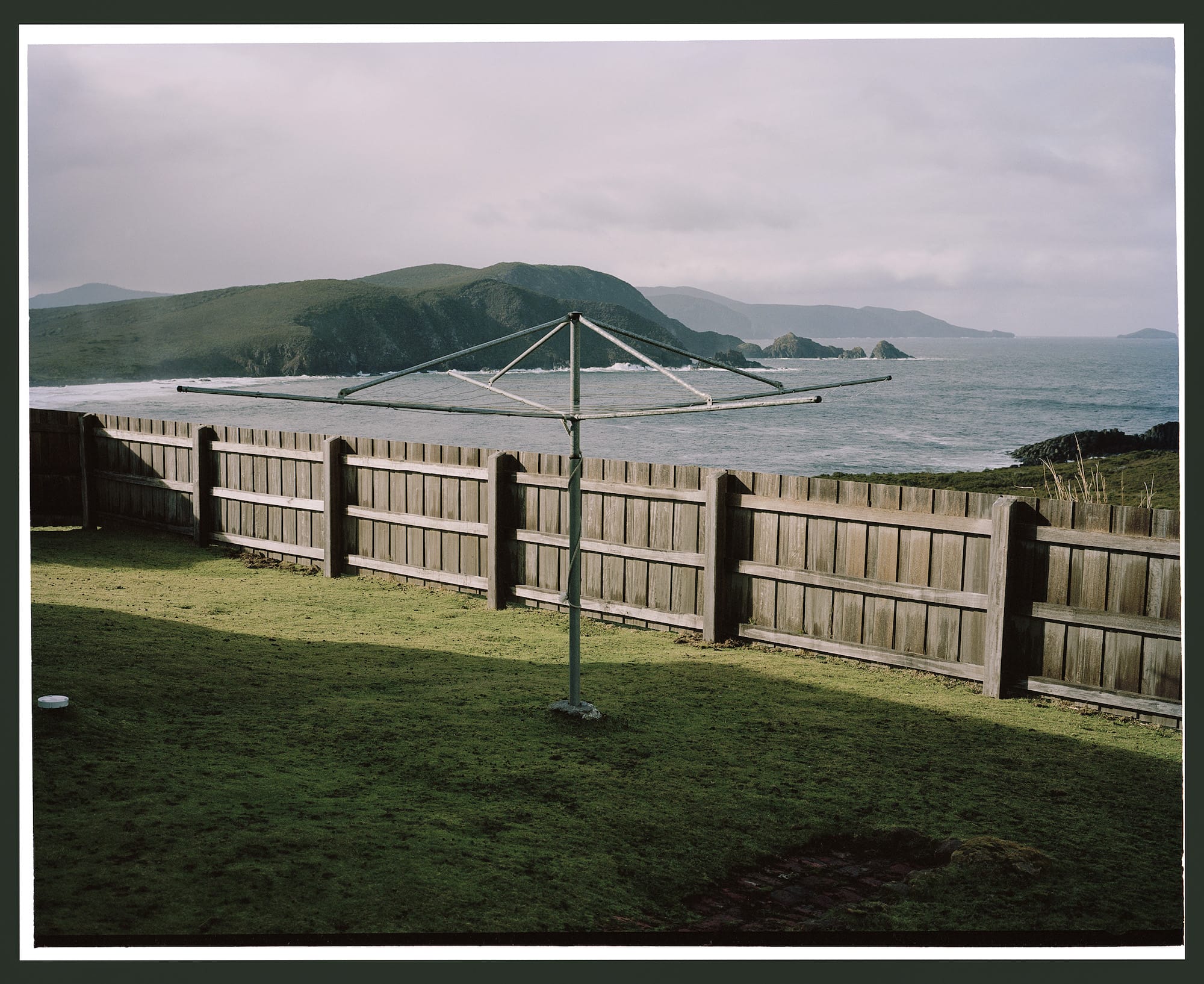
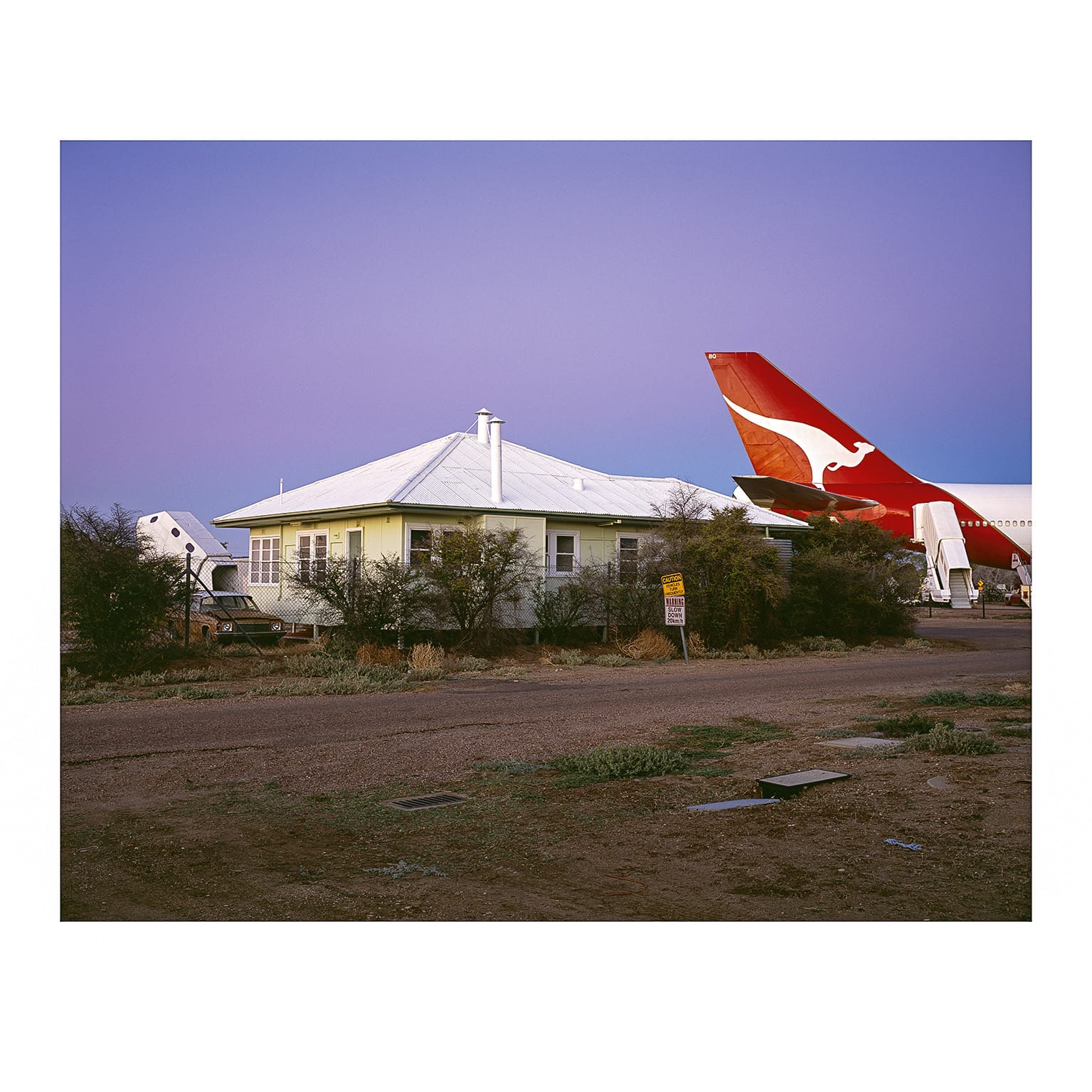
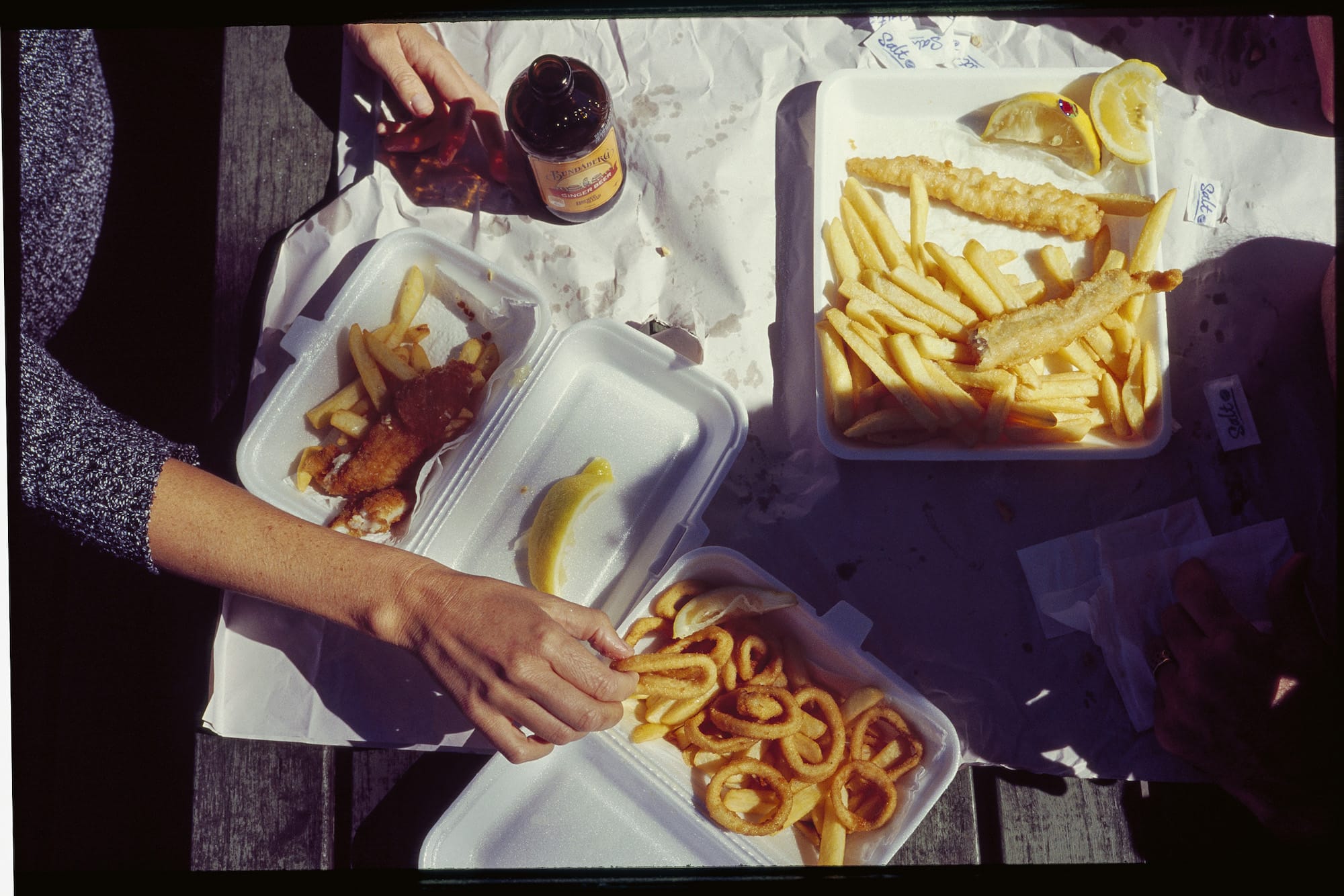
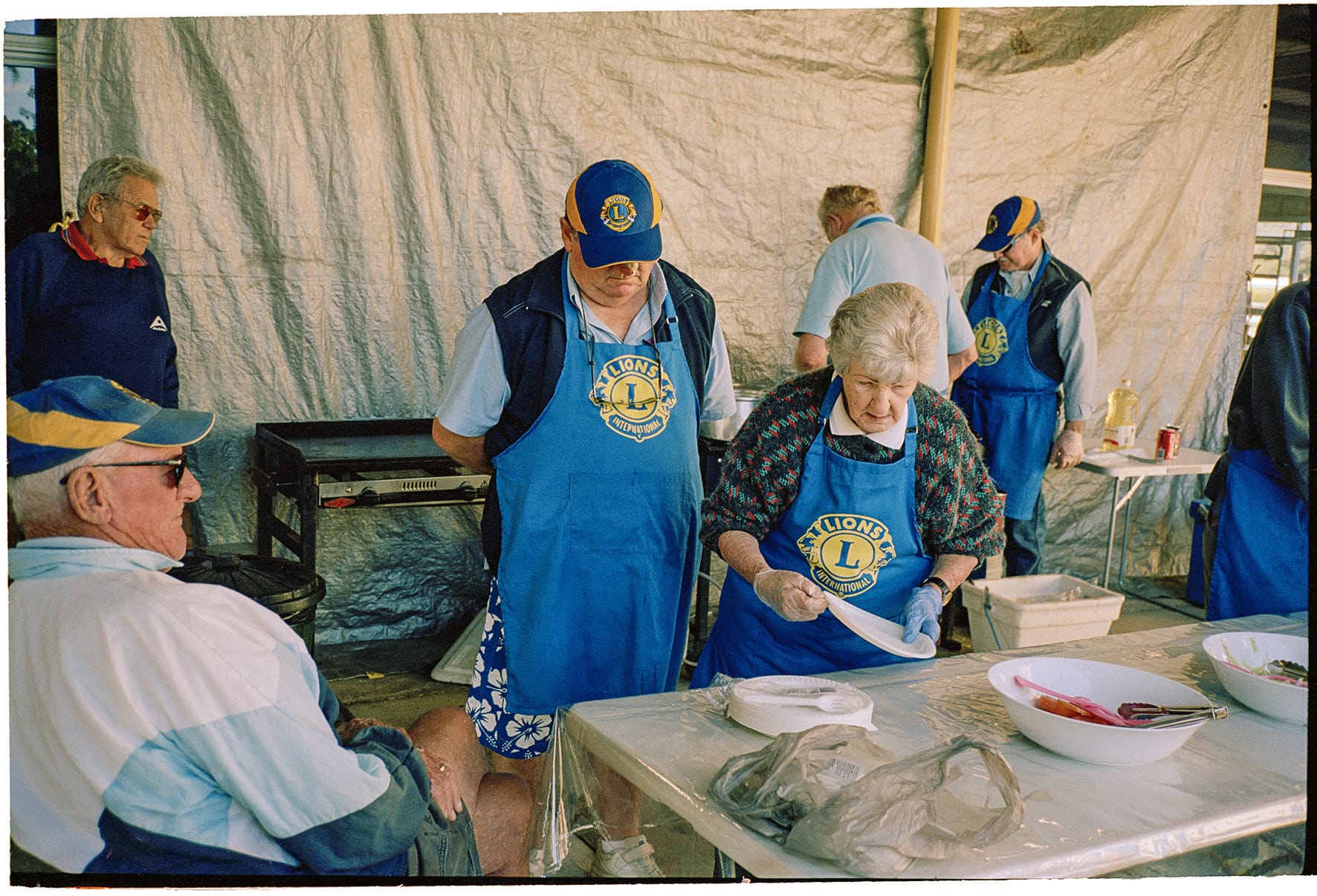
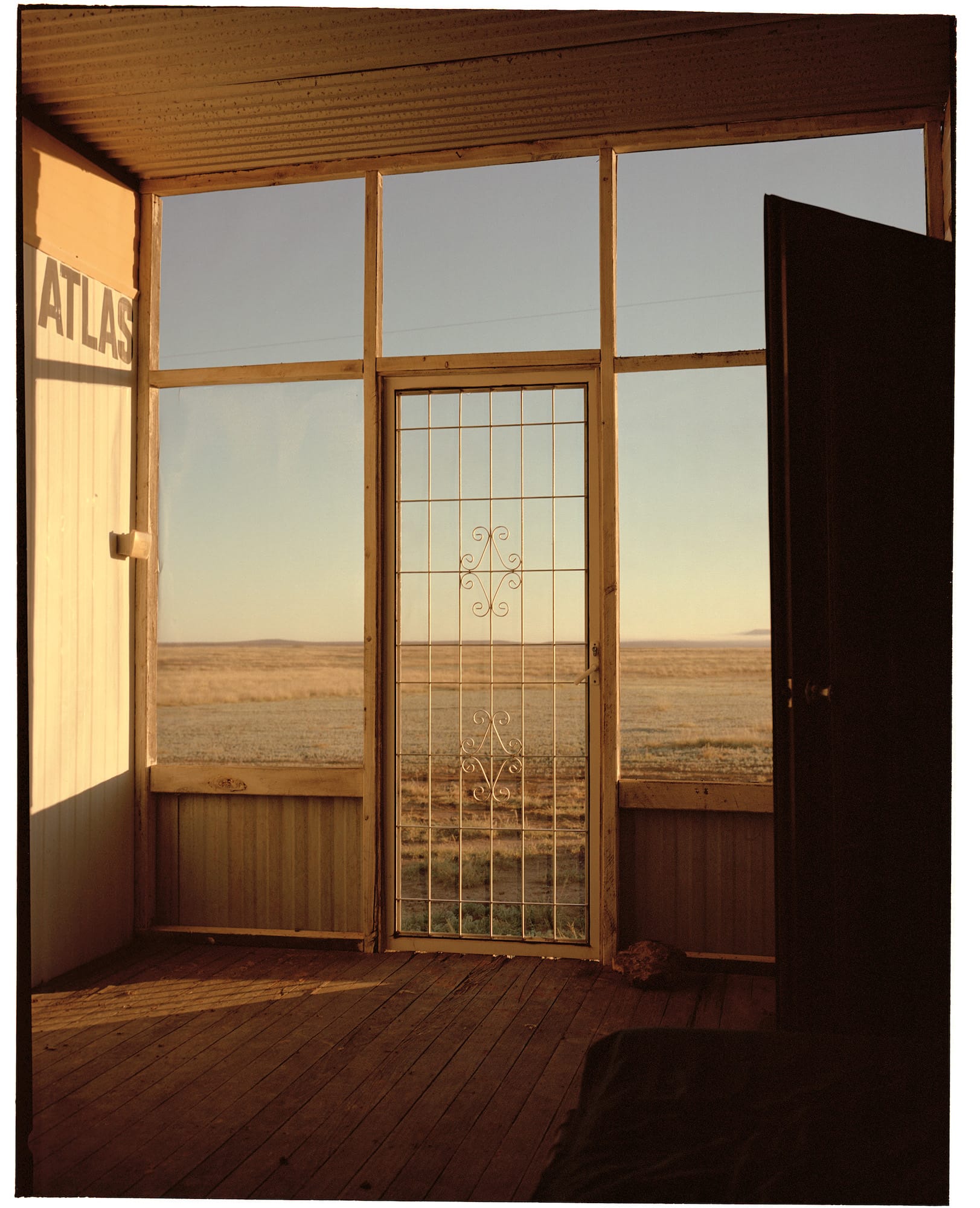
Tall tail in outback Queensland. Dawn breaks on the back streets of Longreach, behind the Qantas Founders Museum; Deep summer, deep-fried lunch on the road; Lions, sausages and soft drinks at a community fundraiser in Tweed Heads, northern New South Wales; Winter morning at shearing quarters on the outskirts of Eromanga in Queensland’s Channel Country, the furthest town from the ocean in Australia and home to the nation’s largest dinosaur fossils.
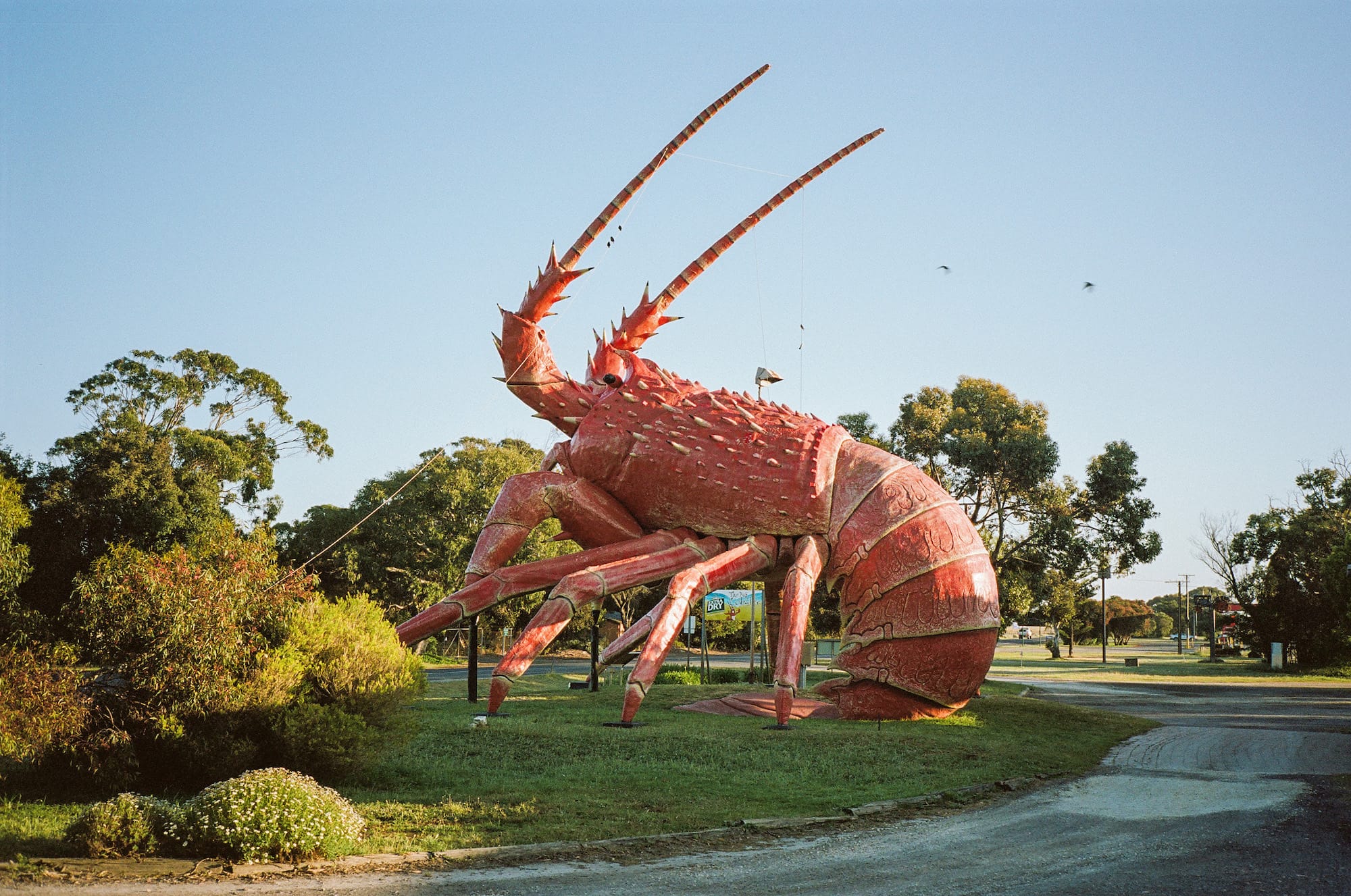
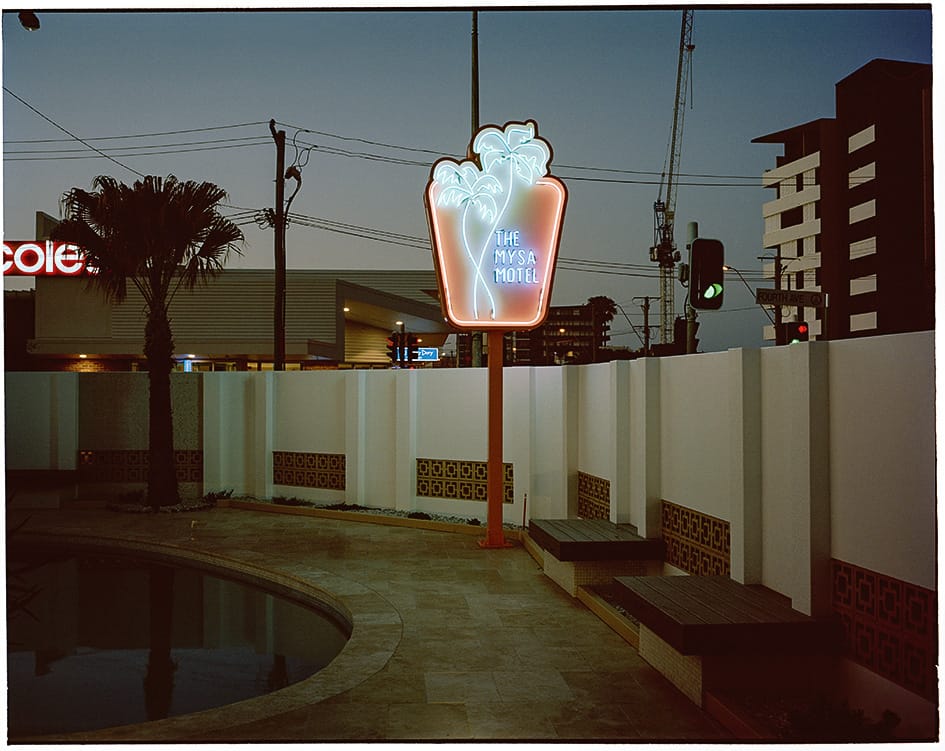
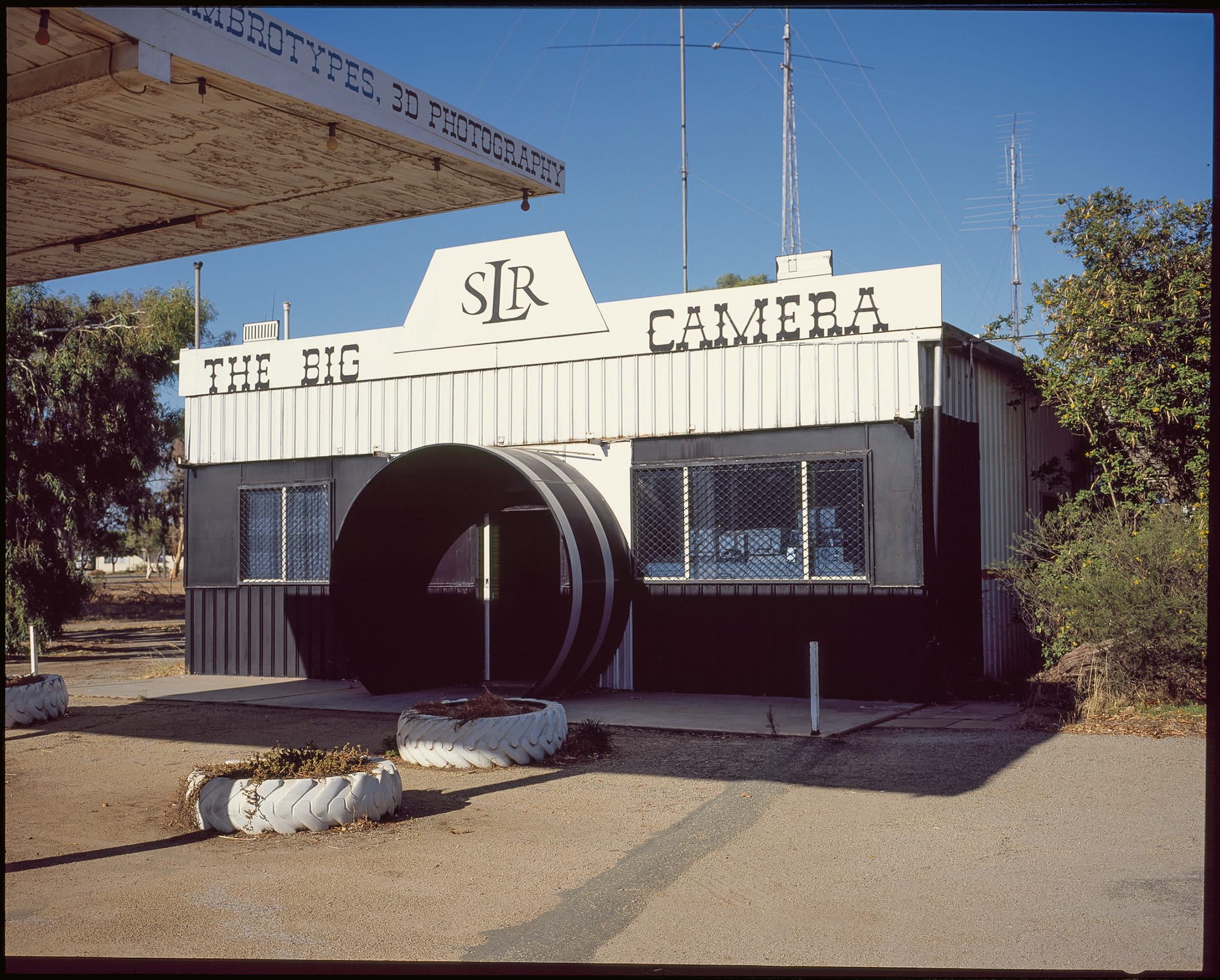
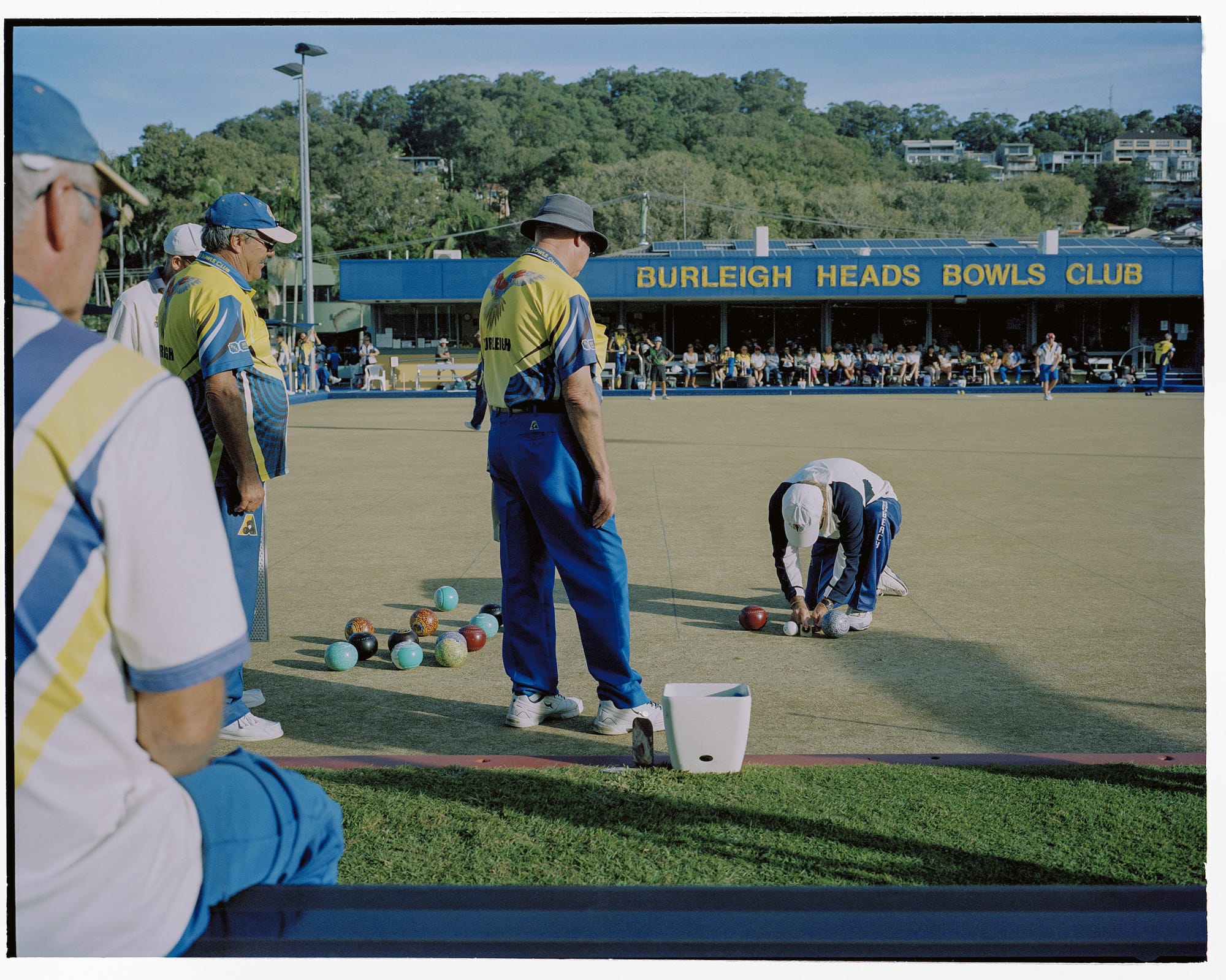
Call me Larry. Rising 17 metres, the Big Lobster in the South Australian coastal town of Kingston SE is a fine specimen in the noble tradition of Australian big things; Channelling neon and retro vibes at The MYSA Motel, Palm Beach, Queensland; Not so big – snapped in Meckering, in Western Australia’s Wheatbelt; Surf or turf: Sunday tactical bowling on the Gold Coast, Queensland.
Australian Lustre by Trent Mitchell is self-published. trentmitchell.com